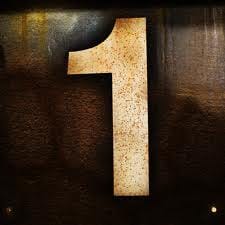 The Thursday Before Easter
The Thursday Before Easter
Jesus, Our Passover Lamb
The blood will be a sign for you on the houses where you are; and when I see the blood, I will pass over you. No destructive plague will touch you when I strike Egypt (Exodus 12:13).
He was oppressed and afflicted, yet he did not open his mouth; he was led like a lamb to the slaughter, and as a sheep before her shearers is silent, so he did not open his mouth (Isaiah 53:7).
After the suffering of his soul, he will see the light of life and be satisfied; by his knowledge my righteous servant will justify many, and he will bear their iniquities (Isaiah 53:11).
You sin.
If that’s news to you, well, there you go. At least you’re in good company—pretty much everyone.
That sin gets between you and God and messes up your relationship, just like lying, cheating, or whatnot hurts any relationship. The Old Covenant had a means for dealing with sin and restoring your relationship with God.
Death.
Don’t like that part? Well, I don’t blame you, but there it is. As Paul says, “The wages of sin is death.” (Romans 3:23) When Adam and Eve first sinned, death was the result. God took an animal, killed it, and used the skin to cover their nakedness…their sin. From that point on, animals were sacrificed to atone, or make up for, man’s sin.
Why would God want us to kill animals, and how does that make up for doing bad things? By itself, the idea doesn’t seem to make much sense. But think of it in context. God used the sacrifice—the physical death—of innocent animals to remind us that sin causes spiritual death in us. And it couldn’t be just any animal—it had to be your best. Woe unto you if you brought leftovers to the Lord of the Universe.
The Passover Lamb was a particularly special sacrifice. It reminded the people of their rescue from slavery. When God broke Pharaoh’s will and forced him to release the Hebrews, he did it by sending an angel to put to death the firstborn of all Egypt. To spare his people from this nightmare, God had them kill a lamb—a perfect lamb, without any defect—and sprinkle its blood on the doorposts of their house. The Lord promised to “pass over” those houses sprinkled with blood. The Jews continue to celebrate the Passover as a most holy day.
As we saw yesterday, Jesus brought a new covenant. As he celebrated Passover with his closest friends, he said he was instituting, “A new covenant, in my blood.” You see, the old covenant was limited in its power. The blood of an animal could temporarily cover a man’s sin, but it could never remove it. A man’s blood was useless, because the sacrifice had to be perfect, and no man was perfect.
Until Jesus.
Jesus lived a sinless life, and thus was the one man in all of history who did not need to offer a sacrifice.
So he offered himself as the sacrifice.
For us.
There is no way to adequately explain Christ’s sacrifice; certainly not in these few words. My Bible covers it in about 2000 pages, and I still don’t fully get it. So let’s rest in these words from Paul:
God made him who had no sin to be sin for us, so that in him we might become the righteousness of God. (2 Corinthians 5:21)
In Christ, you are righteous; in him, you are righteousness. I can’t get my brain around that, but I know I want it.
Do you want it, Beloved?
Then take it.

Thank you for this timely and concise word on The Word, Michael. I’ll highlight your post on the Christian Poets & Writers blog – http://www.christianpoetsandwriters.com. God bless your holy week.
Thank you, Mary, for always being such an encourager.
Beautifully written message, Michael. God bless you. Carol
Thank you.